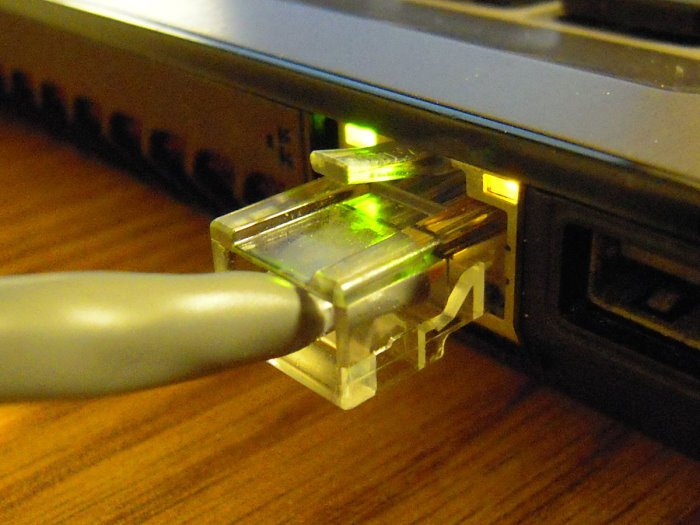These days, most computer devices are being released with Wi-Fi as the standard way of connecting to the internet. However, several are still packed with both Wi-Fi and an Ethernet port for good measure.
Having both on your computer system is very important because you might have to rely on a wired connection at any time, just in case your Wi-Fi adapter fails to work. The big question we need to answer right now is, which one is better? Should we focus on wireless internet, or must we always contend with wires?
Wi-Fi vs Ethernet – Which one should I use?

Well, the world is choosing to go the wireless route for excellent reasons. But that doesn’t mean Ethernet is dead and done. Let us discuss this topic in a more detailed manner.
Critical differences between Ethernet and Wi-Fi
In the past, it made a lot of sense to connect computers to the internet via an Ethernet port, but the same cannot be said today. You see, back then, if you wanted faster internet to your computer or video game console, Wi-Fi, while speedy in its own right, was not on the same level as a wired connection.
Still, despite the faster speed an Ethernet cable brings to the computer, many chose to go with Wi-Fi due to convenience. Folks didn’t want to manage Ethernet cables in their homes anymore, and Wi-Fi was in the perfect position to capitalize on that.
So, at the time, the choice was either convenience or speed. But today, things aren’t so clear anymore. With improved technology, it is clear that one has surpassed the other, at least for now.
Read: What is Wi-Fi 6?
Ethernet vs Wi-Fi Speed
When Wi-Fi was first released to the public, it was under the 802.11g standard, which could deliver theoretical speeds of up to 54Mbps. In truth, most folks did not experience such speeds, but who cared? Connecting to the web from almost anywhere in the home was impressive.
Ethernet technology can deliver speeds from 100Mbps to 1000Mbps and beyond. However, these days, the latest Wi-Fi update can provide more than what the standard Ethernet cable can offer.
The newest standard, 802.11ac, can offer speeds at up to 3200Mbps. In real-world performance, you may only get at around half that number, which is not bad and still ahead of Ethernet.
However, as it stands right now, most home broadband speeds are slower than what 802.11ac offers. Not everyone owns the proper hardware to take advantage of this new Wi-Fi standard, so it will be some time before it takes off worldwide.
Read: Change WiFi Roaming Sensitivity to improve Wi-Fi reception & performance?
What about reliability?
Rregarding reliability, it is safe to say an ethernet connection is more stable than Wi-Fi. Because Wi-Fi is a wireless technology, it faces several environmental factors that could affect performance.
The atmosphere can cause problems, and the same goes for radio waves, other wireless devices, and even the walls in your home.
One of the best ways to solve Wi-Fi problems is to ensure your router is not on the same channel as other routers in your area. Read your router’s manual to learn how to make these changes.
Additionally, you can place your router at the optimal spot in your home or use a Wi-Fi Range Extender.

Security is fundamental
When it comes to security, an ethernet connection is far superior. Any data on the network can only be accessed by devices connected to that network. This means that if a person wants to steal information, they will need to be physically in the space.
Wi-Fi is different because people with the right tools can access data remotely. This can be a significant problem if you’re using free and unencrypted Wi-Fi connections at the park, coffee shop, or even on the bus.
Those that are encrypted are typically difficult to hack if the right encryption method is in play.
Most routers come packed with different methods of security. WPA2-PSK is the most secure, while WEP is the least.
TIP: How To Secure Your WiFi Network.
Ethernet vs. Wi-Fi: Making the best choice
If you play many video games and tend to download, upload large files, or stream regularly, then an ethernet connection would make a lot of sense. However, a secured Wi-Fi connection should be the better choice if you only perform basic tasks on the web as it offers mobility.
So, as it stands, the best one of the two primarily depends on your needs.